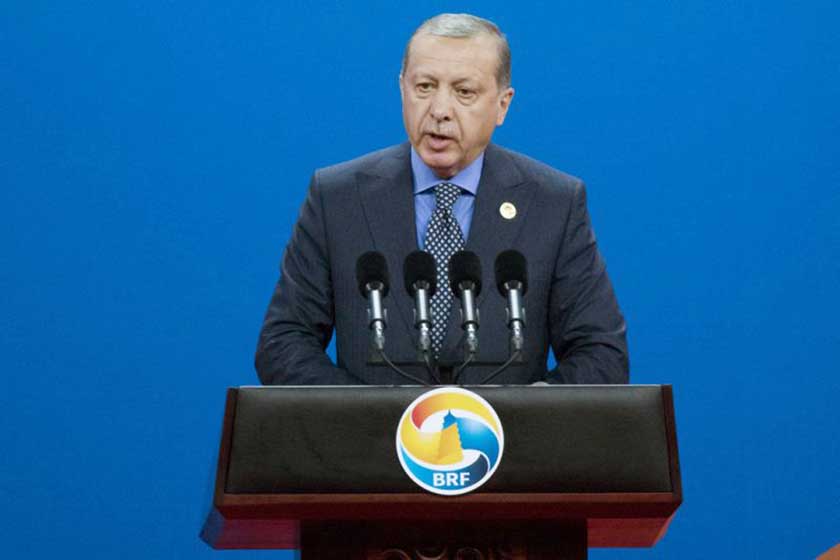
Turkey’s leader Recep Tayyip Erdogan meets with President Donald Trump at the White House Tuesday, hoping to repair ties frayed over Syria and the presence in the US of a bitter political foe.
The meeting comes after Erdogan won a hotly contested referendum boosting his powers and as he aims to entice the American leader into major policy shifts to solidify an increasingly strained relationship. US-Turkish ties became poisoned in the waning months of Barack Obama’s administration by venomous disputes over US support for Kurdish fighters in Syria. The White House said in a statement that Trump and Erdogan will give joint press statements Tuesday followed by a working luncheon.
Turkish officials had hoped for a “new page” after the bickering with Obama, but the Trump administration’s announcement that the US would arm the Syrian Kurdish Peoples’ Protection Units (YPG) — which Ankara views as terrorists-put a damper on such optimism. Ankara regards the YPG as the Syrian arm of the Kurdistan Workers’ Party (PKK), which has waged a deadly insurgency inside Turkey since 1984.
“YPG and PKK are both terror groups, there is no difference at all between them. They only have different names,” Turkish Foreign Minister Mevlut Cavusoglu said recently. Although they are allies in NATO, conflicting goals between Turkey and the United States in the Middle East are seen as one factor leading Ankara to cultivate closer ties with Iran. Turkey has also forged ahead with an increasingly close relationship with Russia’s President Vladimir Putin to the alarm of its Western allies.
Another stumbling block to improved US-Turkish relations has been the presence in the US state of Pennsylvania of the Islamic preacher Fethullah Gulen, whom Erdogan blames for last year’s July 15 failed coup.
Erdogan has made clear he expects steps from Washington over the fate of Gulen, who denies any role in the coup but whom Turkey wants to see extradited and face trial at home. Yet analysts warn that Trump-even if he wanted to-cannot simply promise Erdogan that Gulen will be extradited as the process depends on the independent American judicial system. The Muslim cleric, meanwhile, needled Erdogan in an article appearing in the Washington Post on the eve of the summit, accusing the Turkish leader of authoritarian rule.
“The Turkey that I once knew as a hope-inspiring country on its way to consolidating its democracy and a moderate form of secularism has become the dominion of a president who is doing everything he can to amass power and subjugate dissent,” Gulen wrote in an op-ed piece in the daily.
Erdogan last month narrowly won a referendum to implement an executive presidency from November 2019, axing the role of prime minister and empowering the president to appoint ministers.
“Since July 15, following a deplorable coup attempt, Turkish President Recep Tayyip Erdogan has systematically persecuted innocent people-arresting, detaining, firing and otherwise ruining the lives of more than 300,000 Turkish citizens,” Gulen said, urging the nations of the West to use their moral authority to help reverse the crackdown.
“The people of Turkey need the support of their European allies and the United States to restore their democracy,” he wrote.

